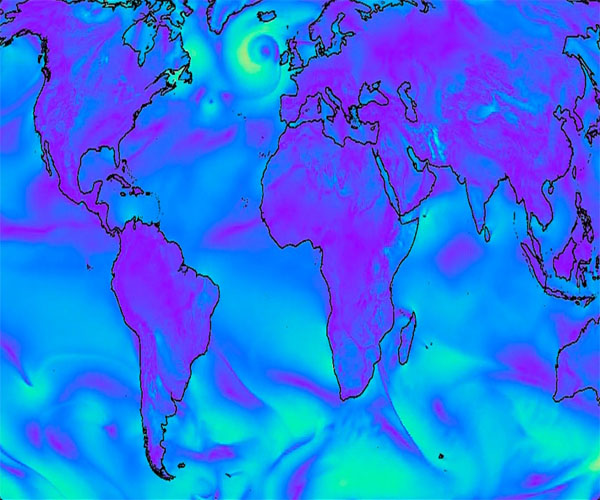Machine learning models are taking over in the field of weather forecasting, from a quick “how long will this rain last” to a 10-day outlook, all the way out to century-level predictions. The technology is increasingly important to climate scientists as well as apps and local news stations — and yet it doesn’t “understand” the weather any more than you or I do.
For decades meteorology and weather forecasting have been largely defined by fitting observations into carefully tuned physics-based models and equations. That’s still true — there’s no science without observation — but the vast archives of data have enabled powerful AI models that cover just about any time scale you could care about. And Google is looking to dominate the field from now to eternity.
At the short end of the spectrum we have the immediate forecast, which generally is consulted for the question “do I need an umbrella?” This is served by DeepMind’s “nowcasting” models, which basically look at precipitation maps like a sequence of images — which they are — and try to predict how the shapes in those images will evolve and shift.
With countless hours of doppler radar to study, the model can get a pretty solid idea of what will happen next, even in fairly complex situations like a cold front bringing in snow or freezing rain (as shown by Chinese researchers building on Google’s work).
This model is an example of how accurate weather predictions can be when made by a system that has no actual knowledge about how that weather happens. Meteorologists can tell you that when this climate phenomenon runs up against this other one, you get fog, or hail, or humid heat, because that’s what the physics tell them. The AI model knows nothing about physics — being purely data-based, it is simply making a statistical guess at what comes next. Just like ChatGPT doesn’t actually “know” what it’s talking about, the weather models don’t “know” what they’re predicting.
It may be surprising to those who think a strong theoretical framework is necessary to produce accurate predictions, and indeed scientists are still wary of blindly adopting a system that doesn’t know a drop of rain from a ray of sunshine. But the results are impressive nevertheless, and in low-stakes matters like “will it rain while I’m walking to the store” it’s more than good enough.
Google’s researchers also recently showed off a new, slightly longer-term model called MetNet-3, which predicts up to 24 hours in the future. As you might guess, this brings in data from a larger area, like weather stations across the county or state, and its predictions take place at a larger scale. This is for things like “is that storm going to cross over the mountains or dissipate” and the like. Knowing whether wind speeds or heat are likely to get into dangerous territory tomorrow morning is essential for planning emergency services and deploying other resources.
Today brings a new development at the “medium-range” scale, which is 7-10 days in the future. Google DeepMind researchers published an article in the journal Science describing GraphCast, which “predicts weather conditions up to 10 days in advance more accurately and much faster than the industry gold-standard weather simulation system.”
Source: TechCrunch




